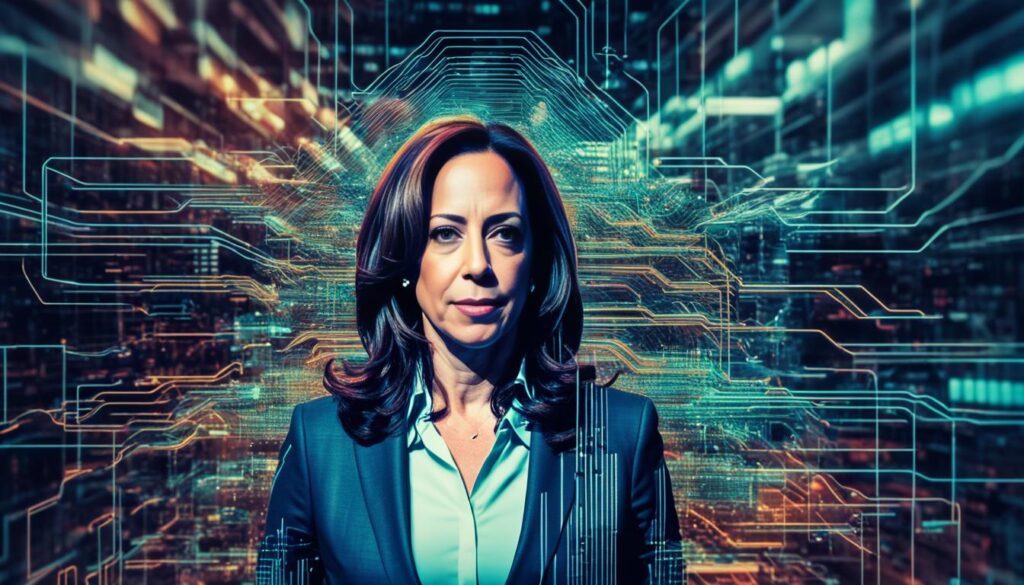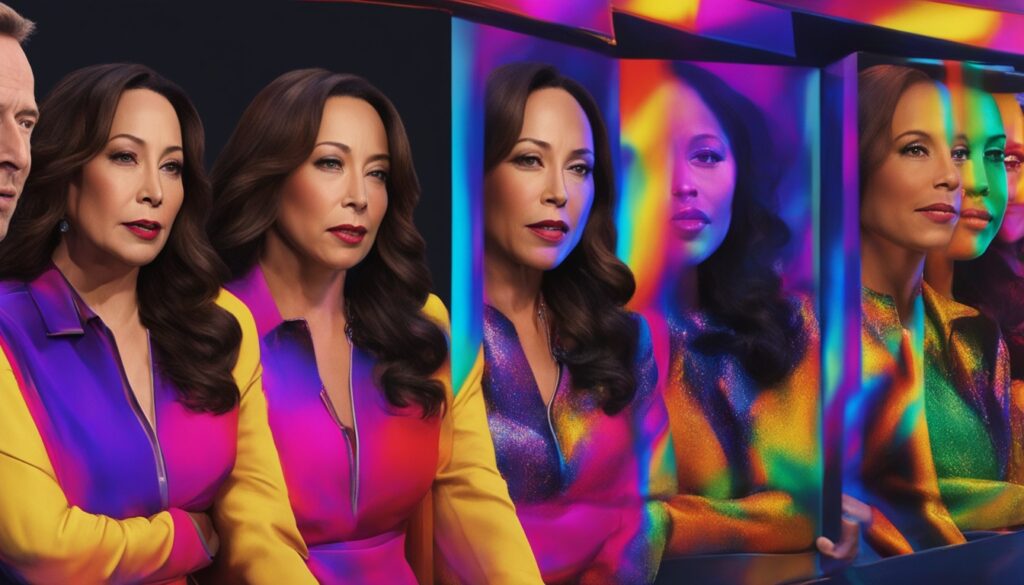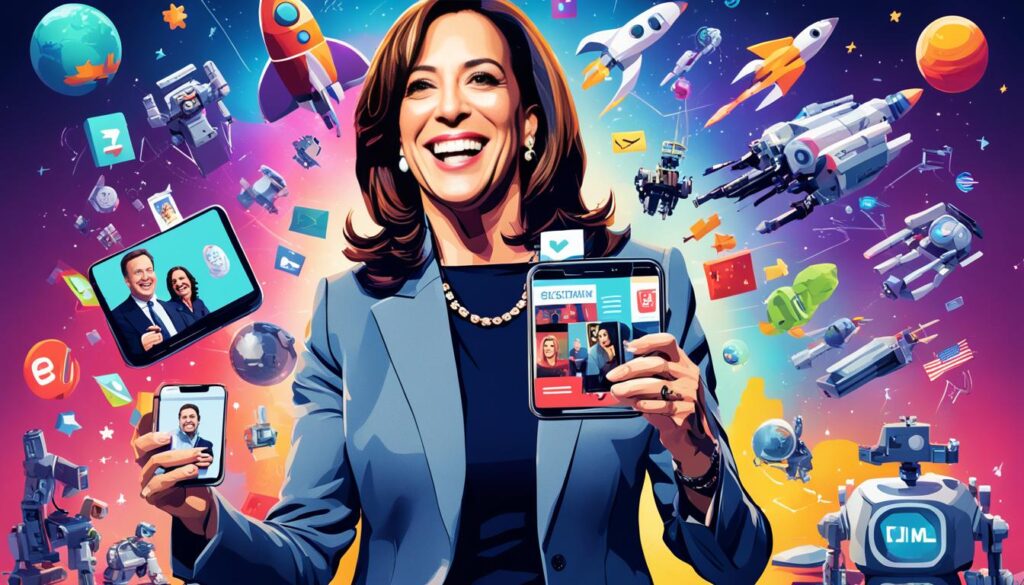Elon Musk, the richest man and owner of X, recently shared a fake video. It makes Vice President Kamala Harris sound like she said things she didn’t. The video, called a “parody,” shows Harris saying she’s a “diversity hire” and doesn’t know how to run the country. Musk’s sharing of this video without warning has caused a lot of debate. It also worries people about AI-generated content and the 2024 U.S. presidential election.
Key Takeaways
- Elon Musk, the world’s richest man, shared a manipulated video mimicking Vice President Kamala Harris’ voice on his social media platform X.
- The video portrayed Harris making statements she did not actually say, including calling herself a “diversity hire” and claiming she doesn’t know how to run the country.
- The video’s origin and Musk’s decision to share it without a clear disclaimer have sparked controversy and raised concerns about the use of AI-generated content to mislead the public.
- The 2024 U.S. presidential election looms, heightening the need for transparency and accountability around the use of synthetic media in political discourse.
- This incident highlights the growing challenges in combating misinformation and the ethical implications of AI misuse in the digital age.
The viral AI Kamala Harris video shared by Elon Musk was allegedly meant as paro
A recent video featuring an AI-made look-alike of Vice President Kamala Harris has caused a big stir. Elon Musk shared it on X (formerly Twitter). The video shows a fake Harris speaking badly about herself and President Biden.
The video’s creator, YouTuber Mr. Reagan, called it a parody. But Elon Musk didn’t say it was a joke when he shared it. This has made people worry about the video’s impact and the ethics of using AI for false content.
Kamala Harris AI video
This video uses AI to make it sound like Kamala Harris is saying bad things. It looks like a real ad from the Harris campaign but has fake audio. The AI makes it seem like Harris is speaking out against herself and Biden.
Elon Musk sharing AI video
Elon Musk posting the video without warning has gotten a lot of backlash. It could trick people and add to worries about AI spreading lies and fake news.
The video and Musk’s action bring up big questions. They make us think about the rightness of using AI to spread false information, especially about political leaders.

Deepfake Video Controversy Raises Concerns
The viral AI Kamala Harris video shared by Elon Musk shows the dangers of deepfakes. This technology is getting easier to use, raising fears about its misuse. People worry about its use in political campaigns and elections.
There’s a big problem because there’s no strong federal rule on AI in politics. Most rules are up to states and social media, making it hard to deal with fake content. This makes us wonder how to handle the deepfake video controversy and misuse of AI technology.
| Potential Risks of Deepfake Videos | Proposed Solutions |
|---|---|
|
|
As deepfakes get better, we need a strong plan to deal with them. This means working together. We need policymakers, tech companies, and the public to join forces. By doing so, we can use AI in a responsible way. This way, we protect our democratic process.

“The rise of deepfake technology has the potential to profoundly impact our political discourse and undermine public trust in our institutions. We must act now to address this emerging threat.”
Ethical Implications of AI Misuse in Politics
The recent viral AI-generated video of Kamala Harris shows the dangers of using AI in politics. As AI gets better at making fake videos, it’s easy to pretend to be someone important. This raises big worries about spreading lies and hurting trust in our democracy.
Synthetic Media Misinformation
Experts say synthetic media, like deepfakes, could be used to spread false info. These AI-made lies can spread fast online. This is a big risk to our elections and how people make decisions.
Public Figures Impersonation by AI
AI can now look like it’s someone famous, including political leaders. This could change what people think, hurt the trust in leaders, and cause trouble in our communities. We need strong rules to stop AI from being used for bad things.
We all need to pay attention to the ethical issues AI misuse brings in politics. We must create strong safety measures and teach the public to fight these risks. This will help protect our democracy.
“As AI continues to advance, there is a pressing need for comprehensive regulation and governance to ensure these powerful tools are not misused for malicious purposes.”
Conclusion
The viral AI Kamala Harris video shared by Elon Musk has started an important talk about AI’s role in politics. The video was meant as a joke, but it raises big questions about AI’s impact on voters. As AI gets better, we need strong rules to stop it from being misused in politics.
We must tackle these issues to keep our democracy honest and protect people from fake news. The rise of viral AI content on social media shows why we need strong AI rules. These rules will help use AI in a responsible way. This way, we can have a political world that’s clear and trustworthy, where people can make good choices without AI tricking them.
Going forward, staying alert and taking action is key to handling AI’s ethical problems. By working together to set clear rules, we can make sure AI helps our democracy, not hurts it.



